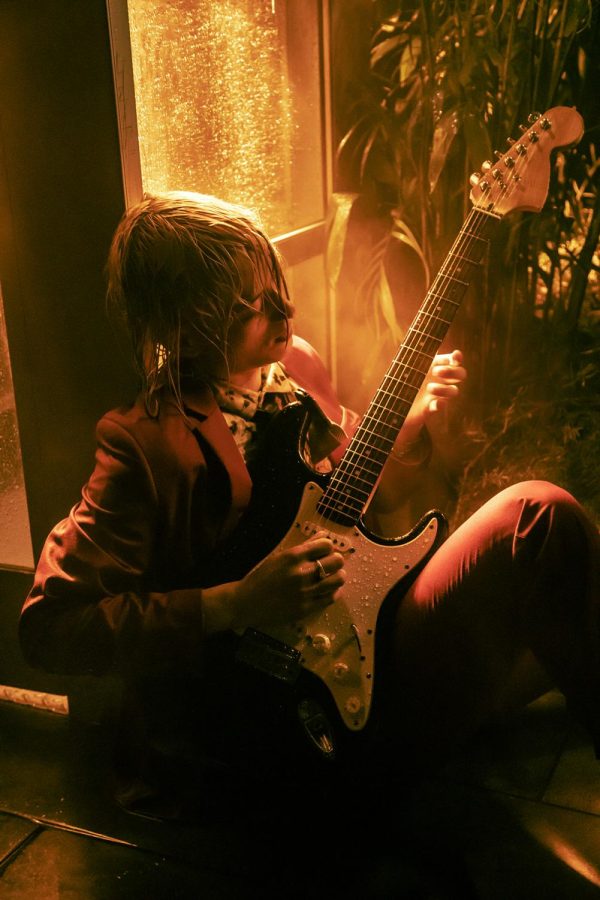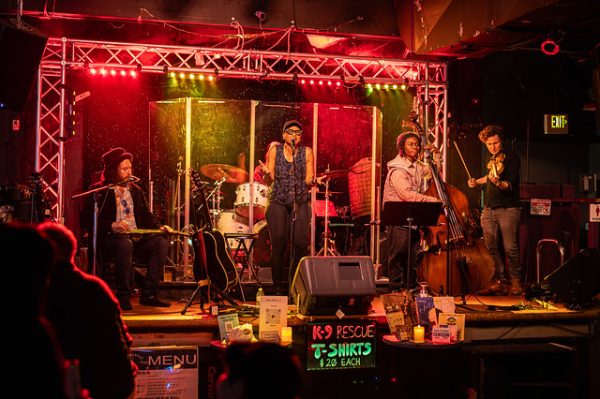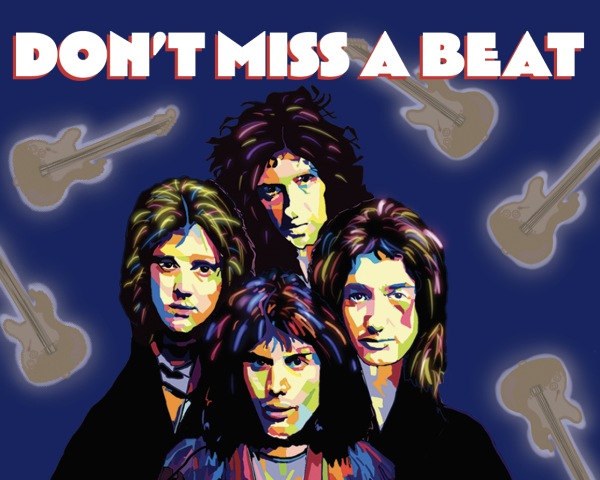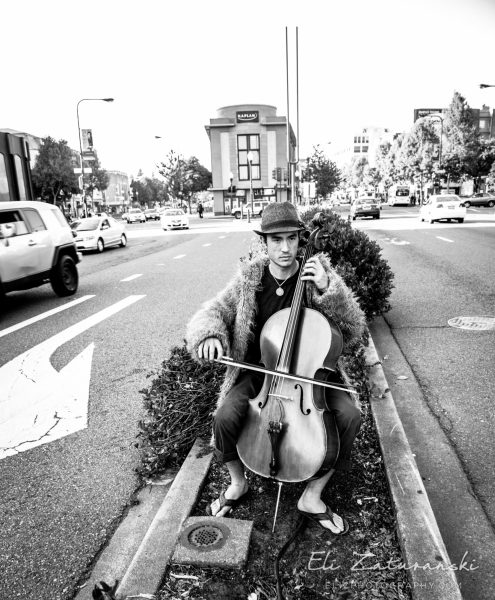Elephante in the Room
88rising’s Elephante ditched his office job for the big stage
Lights cascade down over a cheering crowd and sound fills the room as Tim Wu, known by his stage name Elephante, blasts electronic beats over his guitar. By combining his EDM background with future-based genres, the Taiwanese American artist breaks multiple barriers.
Wu grew up in Ann Arbor, Michigan where he was taught piano from an early age. Though indifferent to the instrument at first, Wu eventually took a liking to piano as he started learning his favorite songs and was “Jedi mind tricked” by his mom into continuing his practice. Then, in middle school, a girl gave Wu his first love and first heartbreak.
“[I] was like, ‘Well, if I become a rock star, then maybe she’ll like me,’” Wu said. “So I started to write songs.”
Long story short, it didn’t work out. Instead, Wu found his true calling in guitar as he studied his idols: John Mayer, the Red Hot Chili Peppers, The Killers and other rock icons. By high school, he was forming his own bands, playing at open mics and writing his own music.
“As I got older and was trying to figure out what I wanted to do with my life … I kept coming back to this idea of, well, [music] is the thing that you love and the thing that you do when you don’t have anything else to do,” Wu said.
But at first, Wu didn’t believe that music was a path he could pursue professionally. Instead, he chose a more stable path; upon graduating Harvard with a degree in economics, Wu took what should have been a comfortable job as a business consultant.
“I was very fortunate to have [the job], but at the end of the day, I was just miserable,” Wu said.
He was torn between two worlds—one that made him money and another that made him happy—and at some point, the latter finally won him over. In 2013, Wu mustered up his courage and quit his job.
“I think what pulled me over the edge [is] so silly in retrospect,” Wu said. “But I had my first offer to do an official remix for, funnily enough, this duo going by Millennium Falcon.”
Since then, his career has seen its fair share of ups and downs. But no matter the challenges he faces, pursuing music full time has brought Wu infinitely more satisfaction than when he was the “Elephante in the room” at his corporate job.
“I had to give myself a shot to make it happen,” Wu said. “Or else I’d never forgive myself.”
At first, the road to success was paved with challenges. Contrary to popular belief, Wu said, the hardest part about starting out in the music industry was not the long hours.
“It’s the challenge of [how] you put so much into every song you make and most of the time, nothing happens with it,” Wu said. “It doesn’t get as many plays as you want. It doesn’t reach as many people.”
Then again, there are moments that make the hardest parts feel worthwhile.
“I think the first really emotional moment was when I was playing a show in Dallas and I heard people singing a song that I’d written,” Wu said. “I was like ‘Oh s—, they are actually singing my song.’”
Since debuting in 2014, Wu has released two Extended Plays (EPs) and one album and has played shows across the country. His latest album, “Heavy Glow,” is a reflection of Wu’s every doubt, glimmer of hope and moment of clarity during the pandemic.
“Around that time, I started becoming more comfortable with my heritage and my ethnicity,” Wu said. “Growing up, there was no template for me. There were no Asian rock stars. There were very few Asian entertainers.”
Wu was looking for representation. Coincidentally, 88rising happened to be looking for an electronic musician.
“[Our] visions aligned and one thing led to another,” Wu said. “It just felt like a cool fit.”
The partnership also stems from Wu’s desire to reach more people on a deeper level through his music.
“It’s trying to create music that [makes people] feel the way that music I loved growing up [made me feel],” Wu said.
As a result, despite basing many songs off of his own emotions and experiences, he believes it is ultimately up to the listener to interpret their meaning.
“[It was] very emotionally challenging to put it all together, but I’m really proud of it and I’m excited for everyone to hear it,” Wu said.
“It was definitely nerve-racking … like I was doing it for the first time again,” Wu said. “But once I was out there, it was like riding a bike.”
“Heavy Glow” also marks Wu’s debut with 88rising, a multinational music company focused on uplifting Asian artists. Wu first heard about the company through a friend and reached out to see if they would be interested in working together.
“I’ve written songs that are very sad to me but that other people find really uplifting and I’m like, ‘That’s great!’ And there are uplifting songs that people find really sad and I’m like, ‘Okay, that’s great, too,’” Wu said. “I just want to create something that creates a fertile bed for people to put their own meaning.”
Last July, Wu performed for a live audience in San Francisco for the first time in two years. As he prepared to mount the stage, Wu worried whether he could reconnect with his audience after being separated for so long.
Now, Wu refuses to take live performances (or anything else) for granted. His goals for the foreseeable future are simply to continue impacting people through his music and pushing creative boundaries—creative like being submerged for twelve hours in filming the music video for “High Water.”
“If you’d told me two years ago that I’d be doing stuff like that, I’d say my head would explode,” Wu said. “To me, it’s just telling my story … and hoping that it gives people something to latch onto and create their own story from.”
Photos by Alex Lopes
Print Issue
Please click on the three vertical dots on the top right-hand corner, then select “Two page view.”
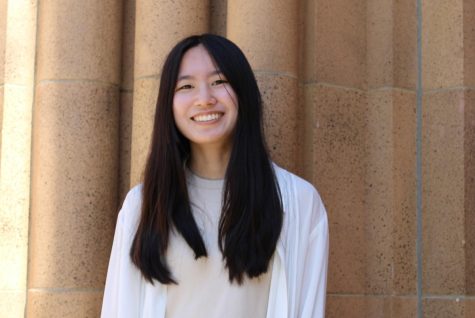
2020-2021 - Staff Writer
2021-2022 - Staff Writer
2022-2023 - Managing Editor
I joined C Mag because of the focus on arts and representing our...
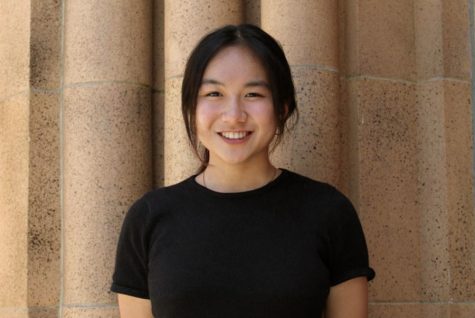
2020-2021 - Staff Writer
2021-2022 - Digital Design Editor
2022-2023 - Creative Advisor
I joined C-Mag because of our amazing page designs and...

2020-2021 - Staff Writer
2021-2022 - Business Manager
I joined C mag because of the dynamic culture the staff brings to the publication.


